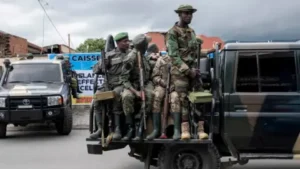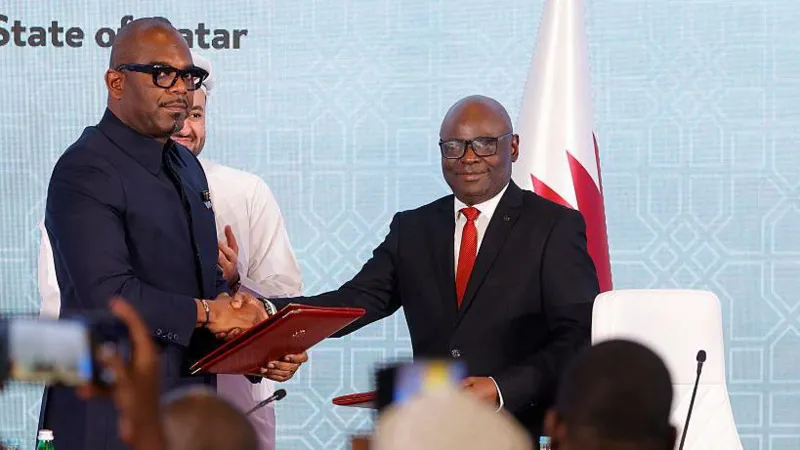Top Story: DR Congo and M23 Rebels Sign Ceasefire Deal in Qatar Amid Ongoing Regional Tensions

Doha, Qatar – The Democratic Republic of Congo (DR Congo) and M23 rebels have signed a ceasefire agreement in Qatar, marking a significant step toward ending months of intense fighting in eastern Congo. The deal, called the Declaration of Principles, was signed on Saturday and outlines a roadmap toward a permanent peace settlement.
According to the agreement, seen by the BBC, both parties have committed to halting attacks, ending hate propaganda, and refraining from forcibly seizing new territory. The ceasefire terms are set to be implemented by July 29, with a final peace agreement due by August 18. That final accord must align with a U.S.-brokered deal between DR Congo and Rwanda, which has faced controversy and international scrutiny.
The conflict, which reignited earlier this year, saw M23 rebels capturing swathes of eastern DR Congo, including the strategic cities of Goma and Bukavu, along with two regional airports. The United Nations reports thousands have been killed and over hundreds of thousands displaced, though M23 disputes the death toll, claiming under 1,000 casualties.
Government and Rebel Divide on Key Issue
DR Congo government spokesperson Patrick Muyaya said the ceasefire reflects key government “red lines”—notably the non-negotiable withdrawal of M23 from occupied areas. However, in a video statement on social media platform X, M23 negotiator Benjamin Mbonimpa insisted the deal makes no mention of such a pull-out, revealing a significant gap in interpretation between the two sides.
This is the first direct agreement between Kinshasa and M23 since the rebel group’s offensive began earlier this year. Despite the agreement, Qatari officials confirmed that negotiations will continue, signaling that major hurdles remain before a final peace can be declared.
African Union, UN Voice Cautious Optimism
The African Union Commission hailed the agreement as a “milestone” in efforts to stabilize the Great Lakes region. The deal also includes commitments to reestablish government authority in contested areas, a key priority for Kinshasa.
However, observers warn that this is only the latest in a long history of failed peace efforts. The M23 movement itself emerged from a broken peace deal signed 16 years ago, which never fully delivered on promises of demobilization and integration into the national army.
Geopolitical and Economic Undercurrents
In March, DR Congo President Félix Tshisekedi and Rwandan President Paul Kagame met in Qatar to call for an immediate ceasefire. A previous Qatari-mediated truce was announced in April, but fighting resumed shortly after.
A separate peace initiative brokered by Washington in June has drawn criticism for allegedly prioritizing U.S. access to DR Congo’s vast mineral resources. Former President Donald Trump has publicly claimed credit for that deal, linking it to broader U.S. strategic interests in the region.
Speculation continues around a potential trip to Washington by Presidents Tshisekedi and Kagame to meet Trump, though no official date has been announced.
As the region waits for signs of lasting peace, many remain cautious. Years of broken agreements have taught communities across eastern DR Congo that declarations alone don’t guarantee safety. The coming weeks will be a crucial test of political will—and international commitment to a conflict that has already claimed far too many lives.
